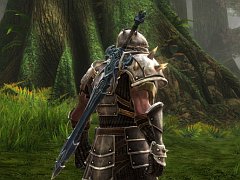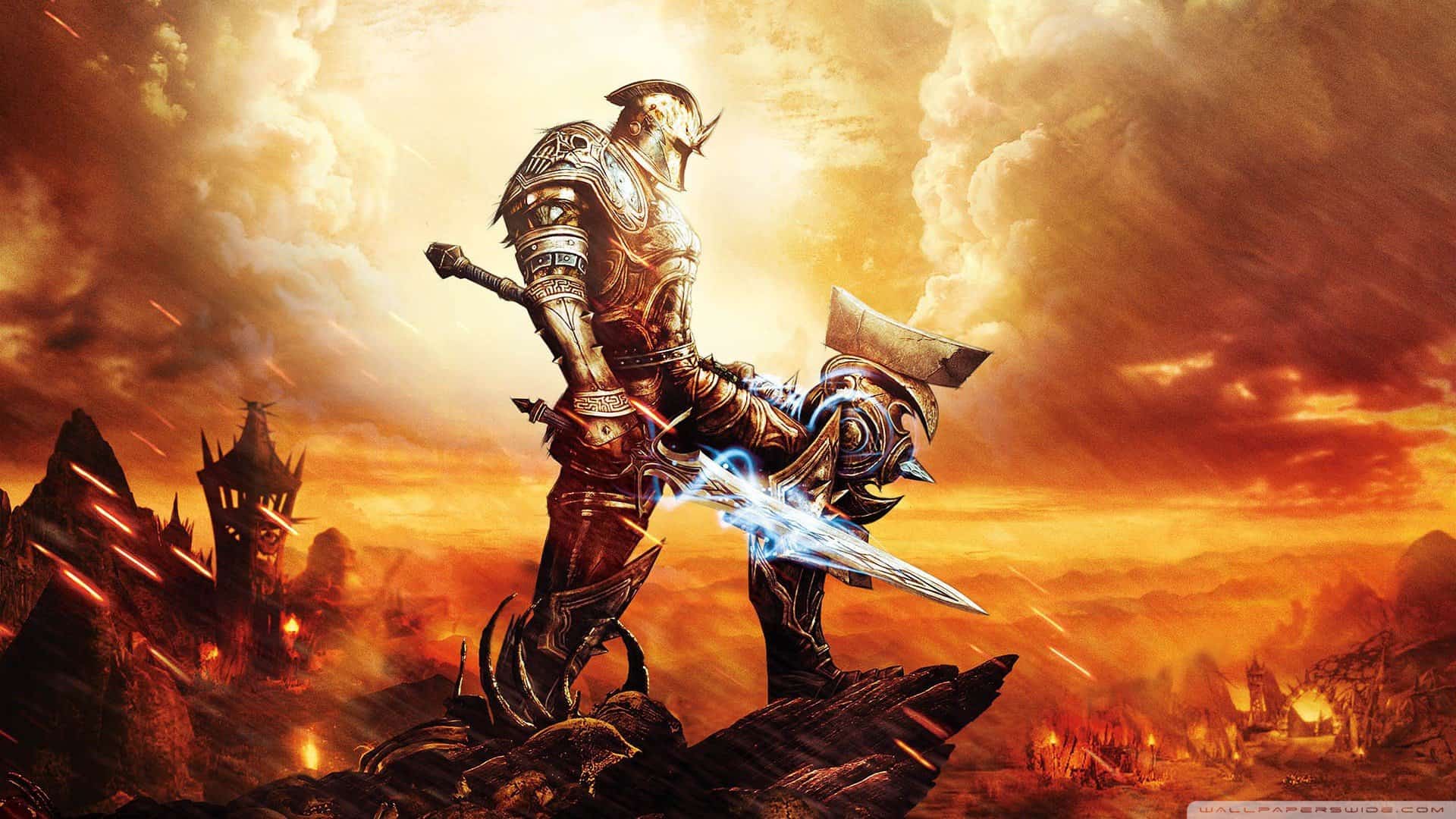You can trust VideoGamer. Our team of gaming experts spend hours testing and reviewing the latest games, to ensure you're reading the most comprehensive guide possible. Rest assured, all imagery and advice is unique and original. Check out how we test and review games here
On the oatmeal scale of game titles, Kingdoms of Amalur: Reckoning is at risk of rating a shade below “porridge” thanks to a name so utterly devoid of character it’s easier just to introduce its developers and skip formalities. This is a product built under the supervision of a fantasy-fiction dream team: Morrowind’s Ken Rolston, Todd McFarlane of Spawn fame, and author RA Salvatore have each given the stamp of pedigree to the game that almost didn’t see the light of day thanks to a dramatic period of being picked up and subsequently dropped by publisher THQ.
It took being plucked out from the depths by former Major League Baseball pitcher and studio owner Curt Schilling before Reckoning finally debuted at GDC 2011 as a single-player, open world story about fate, fantasy and re-animating corpses.
So goes the lore of Reckoning, anyway. RA Salvatore’s narrative revolves around fate and resurrection. The denizens of the kingdom are bound to fate, which they acknowledge as predetermining every aspect of their life. You, on the other hand, are out of the system. You’ve been killed by a stranger, and brought back to life by a gnome scientist who has been testing the waters of something called the Well of Souls. Now reanimated, you pose an issue to the balance between mortals and the fate that binds them as the only character with free-will.
The studio uses this idea as a central part of the RPG’s character creation system. Fatelessness, in the language of Reckoning, translates to your class, skills, and your ability to change these characteristics on the fly. Tradition might dictate once you choose a character’s class, you’re tethered to it for the rest of the game; but in Reckoning’s case you have just about the same freedom of choice that your avatar has.
Users are given a basic character creation tool as well. After choosing from the four available races and deciding on a “God” for them to follow – basically another bonus stat that boosts certain abilities – you can re-design your avatar by sifting through the character presets.
The tutorial takes you through every type of combat available in the game, ranging from magic to ranged weapons and stealth take-downs to melee attacks. You’re a free agent in the game, who can switch between every combat stance at will. Similarly, you can choose to specialise in different class types at any point in the game by selecting from a list and gaining bonus stats based your class choice. Skill Points are accumulated as you level and can be added into any of the three Melee, Finesse, and Sorcery categories, each of which has their own ability tree.
But despite the staunchly traditional backbone, Reckoning is a card-holding member of the action-RPG genre, with very clear influences coming from God of War and Darksiders.
Twitch gameplay reigns throughout, with rolling, projectile dodging, and well-timed blocks becoming the primary combat tactics, and we’re told this is where Todd McFarlane’s influence is its most obvious. McFarlane is working with the team in a supervisor position, largely to suggest different character animations that might look cool.
The game’s penchant for dramatic slow-motion kill shots suggests a comic book enthusiast’s presence on the team. Killing enemies fills your Fate Meter, a gauge that when filled completely lets you enter Reckoning Mode – Red Dead Redemption’s Dead Eye, basically – which increases your speed and attack power while slowing down everyone around you. As you defeat enemies in this mode their fates unravel in a yellow mist, which lets you perform a Fate Shift, using all the fate energy to destroy the attackers in a single burst.
Crafting and exploration come in to play to provide more of the traditional RPG sensibilities. Alchemy, blacksmithing, and sagecrafting open up the possibility to customise weapons and add on particular visual effects or boosts like combining fire with your longsword. Treasure chests, and an environment of crates containing gold, help to draw you off your path and deeper in to the forests and dungeons of Recokning’s expansive landscape.
Still, there’s something about Reckoning that seems too familiar. The game likes its RPG tropes and it’s loyal to those traditions to a fault. It busses in all-too recognisable medieval environments, enemy-types, and quest lines from the likes of Oblivion and Fable, and – like the game’s characterless title suggests – has obvious issues defining its own place in the genre.
This might prove to be a problem with the likes of the already well-hyped Skyrim on the horizon. For now though, it’s safe to trust that the pros in the studio know what they’re doing.
Kingdoms of Amalur: Reckoning is due for release on Xbox 360, PS3 and PC February 10 2012.
Kingdoms of Amalur: Reckoning
- Platform(s): PC, PlayStation 3, PlayStation 4, Xbox 360, Xbox One
- Genre(s): Action, Adventure, RPG

/https://oimg.videogamer.com/images/d4a6/kingdoms_of_amalur_reckoning_34.jpg)
